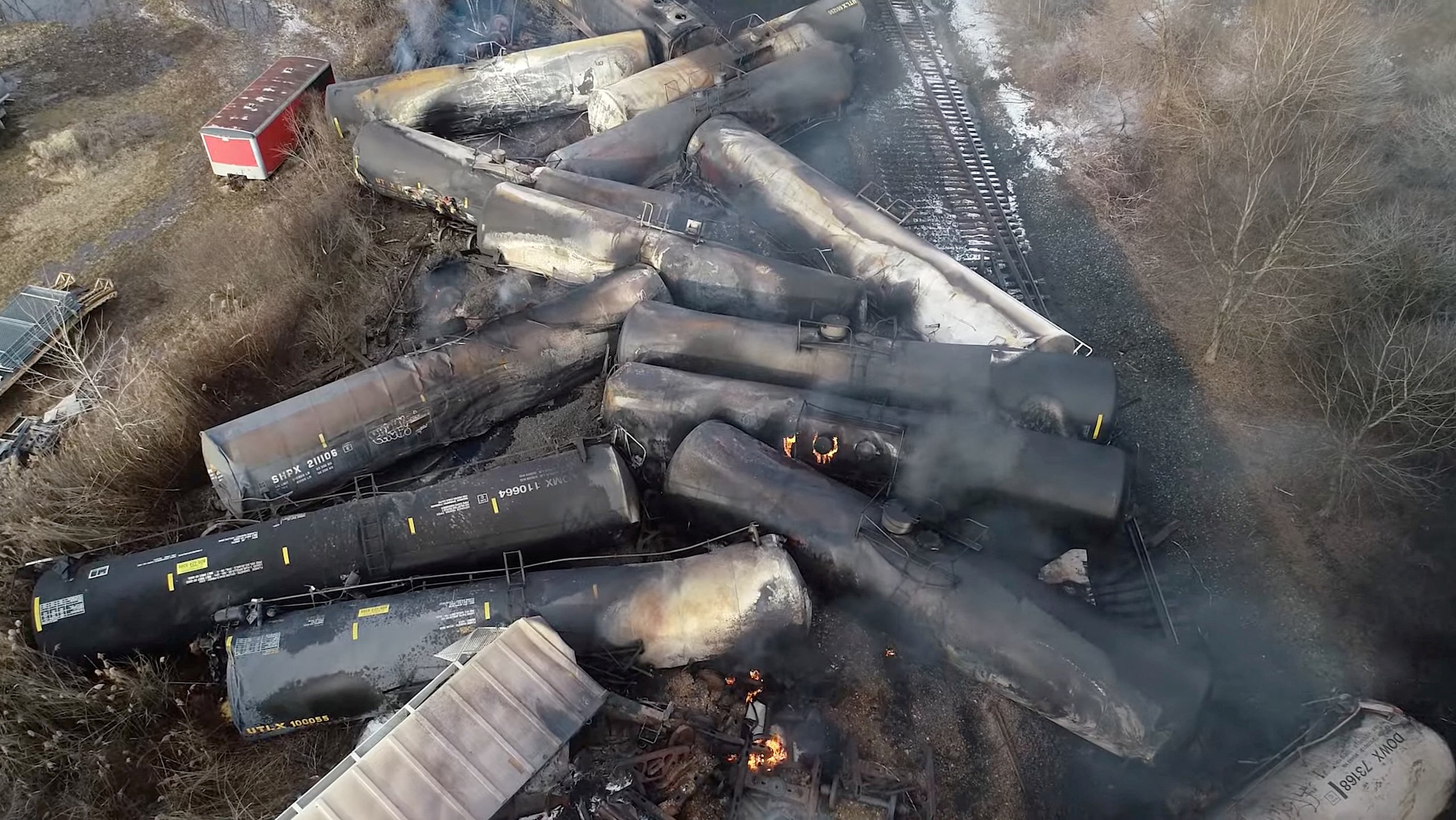
Tell your state representative: Reduce toxic train derailments
Colorado lawmakers can pass a bill to reduce the number of and threat from train derailments in our state.
Send an email to your state rep.
Director, Public Lands Campaign, Environment America
Policy Intern
The Colorado Legislature could soon make Colorado’s railroads safer if they pass Railroad Safety Requirements (HB24-1030) introduced by Representative Javier Mabrey and Senators Lisa Cutter and Tony Exum. If passed, this bill will ensure that trains are limited to 8,500 feet in length, that trains aren’t blocking railroad crossings for extended periods and other important safety measures to protect people and reduce the threat of toxic train accidents.
Toxic substances are hauled by trains across the country. Railroads like Union Pacific and BNSF serve some of the largest coal mines in the country, transporting coal from states like Wyoming, Colorado, and North Dakota to other parts of the country. Coal ash, the byproduct of burning coal, contains mercury and arsenic. These are toxic metals that can cause health problems such as cancer and heavy metal poisoning. The Uinta Basin Railway was a proposed project that would have funneled more oil trains from Utah into Colorado. Many of these trains would end up running along 150 miles of the Colorado River from the Uinta Basin Railway to refineries across the country. If a spill were to occur into the Colorado River, the millions of Americans living downstream and relying on the river for their water supply would be at risk. Luckily, that project was finally put to a stop when the Forest Service withdrew the permit for the Utah portion of the tracks.
On September 6, a Union Pacific train partially derailed in Bennett but, luckily, did not spill any toxic substances or injure any people. On October 15, another train derailed outside of Pueblo, tragically killing a truck driver and spilling coal all over Interstate 25. Although a report by the National Transportation and Safety Board (NTSB) regarding the derailment did not identify any environmental impacts from the coal spilled near Pueblo, we do know that other accidents, like the one in East Palestine, Ohio, can cause massive environmental and public health disasters.
Trains also derailed in Colorado in November and January. Reports state that the derailment on November 13 was a train that had magnesium, oil, and other potentially toxic substances in some of its cars, which luckily did not spill. Although the cause of some of these incidents is still under investigation, we can assume that if there were more railroad defect detectors, more information would be available to engineers to avoid a catastrophe like the one in East Palestine, Ohio. Known as defect detectors, these are devices that are attached to rails to warn train drivers of potential track or train issues.
In Pueblo, the accident likely occurred due to a broken rail, which is something that should be detected by defect detectors. The accident in East Palestine, Ohio occurred due to an overheating wheel bearing on one of the train cars– another issue that should be detected by defect detectors on the rails. One of the Railway Safety Act provisions will increase the required number of detectors throughout the rail systems in Colorado, increasing the train driver’s ability to recognize and avoid issues like the ones that caused derailments in East Palestine and Pueblo.
The bill will require railroad companies to possess enough insurance to pay for the cleanup of any future accidents in the state. This ensures that local communities are not responsible for cleanup costs when trains derail near their towns and that railroads are held responsible for ensuring that their transit practices of hazardous materials are safe and secure.
HB24-1030 will help to ensure that accidents like those in East Palestine and north of Pueblo are less likely to happen while also ensuring that there are adequate resources available for clean-up in the event of a derailment and spill. Colorado lawmakers must pass the Railway Safety Requirements bill better to protect the public and the environment of the state.
Ellen runs campaigns to protect America's beautiful places, from local beachfronts to remote mountain peaks. Prior to her current role, Ellen worked as the organizing director for Environment America’s Climate Defenders campaign. Ellen lives in Denver, where she likes to hike in Colorado's mountains.
Policy Intern
